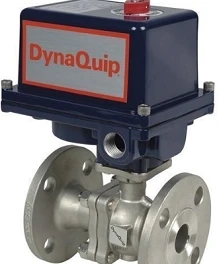Electric actuator valves are becoming increasingly popular in various industrial applications due to their numerous benefits. These devices are crucial in controlling the flow of fluids in systems, providing precise and efficient operations. Here are some of the key advantages of installing an electric actuator valve:
Precision and Control: One of the most significant benefits of an electric actuator valve is its ability to provide precise control over the flow of fluids. The electric actuator allows for fine adjustments, which can be crucial in processes where accuracy is essential. This precision helps in maintaining optimal performance and efficiency in various applications, such as water treatment plants, oil and gas pipelines, and chemical processing units.
Automation and Remote Operation: Electric actuator valves are integral to modern automation systems. They can be easily integrated into automated control systems, allowing for remote operation and monitoring. This capability reduces the need for manual intervention, which can be both time-consuming and prone to human error. Automation ensures that the systems operate smoothly and consistently, enhancing overall productivity.
Energy Efficiency: Unlike traditional pneumatic or hydraulic actuators, electric actuator valves are more energy-efficient. They consume less power and do not require a continuous supply of compressed air or hydraulic fluid, leading to significant energy savings. This efficiency is particularly beneficial in large-scale operations where reducing energy consumption can lead to substantial cost savings.
Reliability and Durability: Electric actuator valves are known for their reliability and long service life. They are designed to withstand harsh environmental conditions and demanding operational requirements. The robustness of these valves minimizes the risk of breakdowns and the need for frequent maintenance, which can otherwise disrupt operations and incur additional costs.
Safety: The use of electric actuator valves enhances the safety of industrial operations. These valves can be programmed to automatically shut off in case of emergencies or system failures, preventing potential hazards such as leaks or overflows. This feature is crucial in industries dealing with hazardous or high-pressure fluids, where safety is a paramount concern.
Cost-Effectiveness: Although the initial investment in an electric actuator valve might be higher compared to traditional valves, the long-term benefits outweigh the costs. The reduced need for maintenance, lower energy consumption, and improved operational efficiency contribute to significant cost savings over time.
In conclusion, installing an electric actuator valve offers numerous benefits, including precise control, automation, energy efficiency, reliability, safety, and cost-effectiveness. These advantages make electric actuator valves an excellent choice for various industrial applications, ensuring optimal performance and enhanced productivity. As industries continue to evolve, the adoption of advanced technologies like electric actuator valves will play a crucial role in driving efficiency and sustainability.



